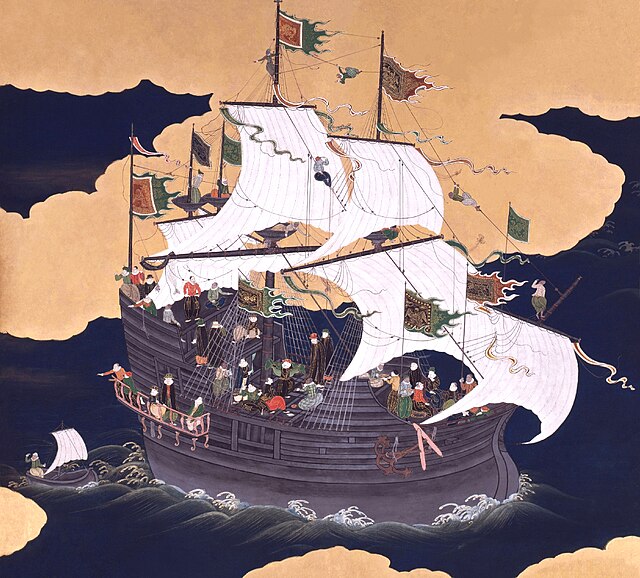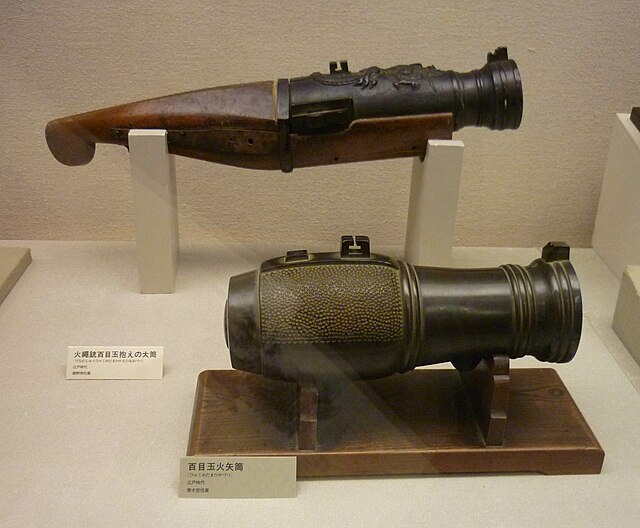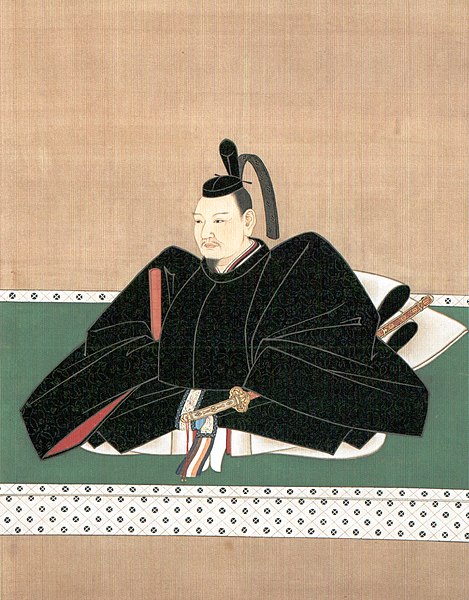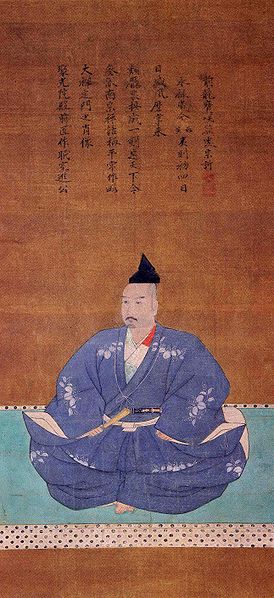The Battle of Fukuda Bay in 1565 was the first recorded naval battle between Europeans and the Japanese. A flotilla of samurai under the daimyō Matsura Takanobu attacked two Portuguese trade vessels that had shunned Matsura's port in Hirado and had gone instead to trade at Fukuda, a port belonging to the rival Ōmura Sumitada. The engagement was part of a process of trial and error by the Portuguese traders to find a safe harbour for their carracks in Japan that eventually brought them to Nagasaki.
Nanban Ship, Kano Naizen
The Sengoku period, also known as Sengoku Jidai is the period in Japanese history in which civil wars and social upheavals took place almost continuously in the 15th and 16th centuries. Although the Kyōtoku incident (1454), Ōnin War (1467) or Meiō incident (1493) are generally chosen as the Sengoku period's start date, there are many competing historiographies for its end date, ranging from 1568, the date of Oda Nobunaga's march on Kyoto, to the suppression of the Shimabara Rebellion in 1638, deep into what is traditionally considered the Edo period. Regardless of the dates chosen, the Sengoku period overlaps substantially with the Muromachi period (1336–1573).
Painting depicting a battle during the Ōnin War
Ōzutsu (Big Gun)
Hosokawa Masamoto
Miyoshi Nagayoshi





